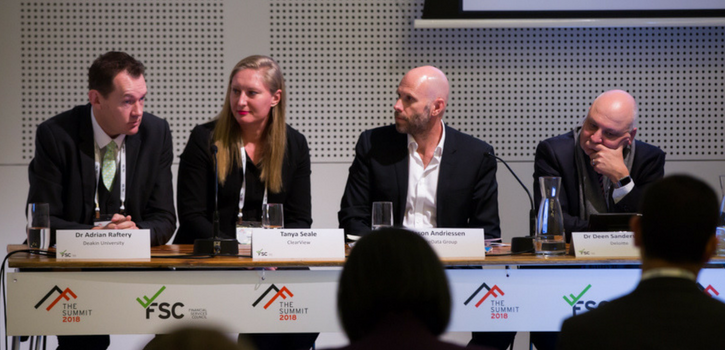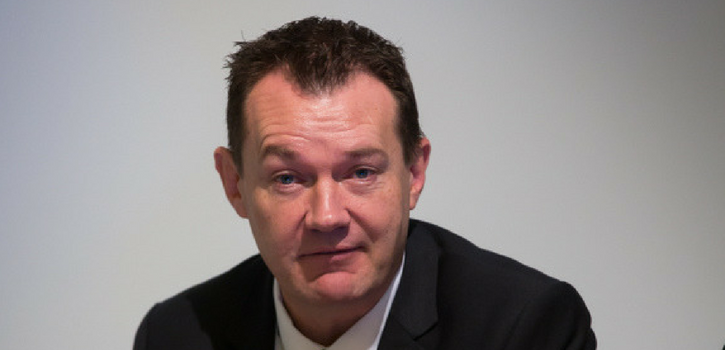FASEA changes are about more than just adviser education.
FASEA Update
At the FSC Summit 2018 panel providing an update of FASEA, former FASEA CEO Dr Deen Sanders OAM repeatedly encouraged the audience and panellists to focus on the overarching objective of the process, and not just on the logistics around further education for advisers.

Education was the dominant topic, as the impacts of that requirement are expected to drive thousands of the most experienced advisers from the industry, at a time when a professional year is about to be introduced that requires supervision from an expert.
Chair of the session Dante De Gori, CEO, Financial Planning Association of Australia, outlined some facts from his association’s interaction with its members.
“Over 2,000 emails and phone calls from members; more than 4,000 members completed a questionnaire on the education standards, and over 4,500 members attended roadshows and webinars on FASEA, and about 80 per cent of members support the position taken by the FPA,” De Gori stated.
“It’s also very important to say that the majority of financial planners, licensees, and people connected to the financial planning profession absolutely and unequivocally support the need to raise standards, with the ultimate aim to win back trust with the Australian public.”
The standards include more than education, with the list of criteria including education, professional year, exam, code of ethics under a code monitoring body, CPD, and the ASIC financial adviser register. However it is the education requirements that keep raising flags, according to the panel.
“The biggest surprise was the 800 hours of additional education that was proposed in the professional year,” said Tanya Seale, Head of Advice at ClearView. “So of the 1,800 hours, it looks like another 800 hours, which is equivalent to another graduate diploma in the first year, having already completed the degree. That’s definitely something that we’ll be seeking to provide feedback on in the consultation.”
The panel flagged the potential of there being insufficient experienced planners to supervise when the professional year begins.
“FASEA’s primary mandate is to work out how we meet the legislative requirements, and it’s the how that matters,” Deen Sanders OAM, Partner at Deloitte, said. “It’s the how that I’m hearing concern and anxiety about— how we achieve that professionalisation.”
“Of those with 20 years of experience, 58 per cent have a degree, but only 6 per cent meet the standards as they’re proposed,” explained Jason Andriessen, Managing Director, CoreData Group, referencing research his business had conducted on behalf of the FPA, with its members.
“If you extend that to 16-20 years of experience, 12 per cent meet the standards. It’s the educated, most experienced, wisest financial planners who will need to do the most, who feel the most disrespected, and who are most likely to leave, and this is something we should be worried about.”
Data also showed that across the survey pool of 3,393 FPA members, one in three overall said that they intend to retire or leave financial planning. Among advisers that are over 55 years of age, that climbs to 68 per cent say that they will retire.

“That’s higher than what we say in the UK a few years ago,” Andriessen said.
“Since 2016 our enrolments in postgrads are up 44 per cent; undergrad 74 per cent increase with the biggest increase in the cloud,” Adrian Raftery, Associate Professor at Deakin said. “The numbers are really low. Of ¾ of the 25,000 who probably need further education study, we predicted about 5,000 - 8,000 would leave, and we think our target market is 10,000 to 13,000 advisers should be coming through. It’s not happening.”

Again, Sanders sought to bring the conversation back to the macro view.
“The FASEA reforms are not about, frankly, educating advisers. That’s not all they’re about, and the more we see it that way the more we’re in danger of misunderstanding the whole regime. It affects licensees; this is a major piece of transformational infrastructure in relation to professionalisation.”
This is far more about the issue of a wider infrastructure of the way a significant economic sector has a relationship with the Australian population, with Sanders emphasising that it was about the entire financial services industry, and not just financial advice.
However, education is where the concern lies. While Deakin has the ingredients to create any required course from its existing qualifications, Raftery said that there would likely be a compression of activity shortly before the deadline, which will be a challenge for education providers.

